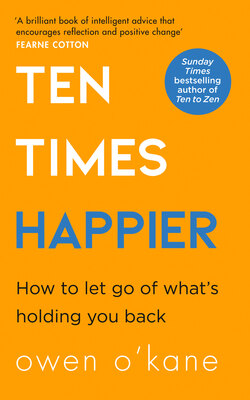Читать книгу Ten Times Happier - Owen O’Kane - Страница 15
THE EVIDENCE AND RESEARCH
ОглавлениеWhat we know from all the major research papers on depression and other mood ‘disorders’ is that one of the strongest factors for maintaining low mood is ruminating on the past. Let me explain this a little more. In short, if you replay the same material in your mind over and over again, then you are reliving the experience in an unhelpful way. If you are feeling low or want to avoid negative changes in your mood then scientifically the evidence is clear: don’t overthink the past. Overthinking will not change what has happened, it will not lead to a resolution, and it will keep you stuck. If you still feel stuck after following the steps in this chapter or it seems impossible to not think about events, that is when professional help might be considered to help you process whatever is going on.
It’s a similar story with anxiety. Many of the latest neuroscientific developments on mindfulness indicate that living in the present moment deactivates the brain’s threat centre (the amygdala) and reduces symptoms of anxiety. When excessive time is spent focussing on the past then the present moment gets lost, leading to rising anxiety levels.
Almost all of the research into self-esteem has also clearly shown that when people do not challenge or restructure unhelpful rules or beliefs from the past then self-esteem issues become more prominent in adult life.
In short, if you dwell too much on traumatic events of the past or unhelpful rules and beliefs, you can be robbed of your future. I present to you a choice: a future nourished by your past or one that is sabotaged by it.
